Archives & Special Collections Events & Exhibits
Current Events & Exhibits
Listen to Children: The Jack Prelutsky Antiquarian Children's Poetry Collection
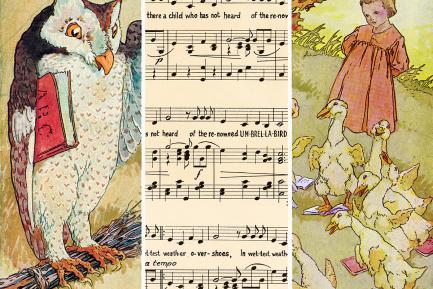
Archives & Special Collections Distinguished Speaker Series
Archives & Special Collections regularly hosts speakers who are authorities in their respective fields and who have used our resources significantly in their research. Programs are free and we welcome attendance from members of the campus and broader community. Past speakers and video recordings of their talks are available on Western's Institutional Repository, CEDAR.
Recent Speakers
Racing Silences: Lumber, Labor and Atemporalities in 1910s and 1920s Whatcom County
Janna Haider, a PhD candidate in the Department of History at the University of California, Santa Barbara and 2023 James W. Scott Fellowship recipient, discusses the history and narratives of race, racism and organized labor in Bellingham and the larger region with specific reference to the 1907 race riots, and the challenge of silences in the archives about South Asian and non-white workers and race.
'Command the Air and You Command the Market’: The Story of KVOS v. Associated Press (1936)
Dr. Helen Knowles, 2020 James W. Scott Research Fellow, presents on Pacific Northwest broadcasting pioneer Rogan Jones and the landmark 1936 U.S. Supreme Court case of KVOS v. Associated Press.
In Conversation with Robert Ashworth and Betty Desire: Unboxing a Local Queer History, 1975-1995
What insights about Queer experience can we gain from looking at our recent past? What key comparisons can we draw upon to understand Queer experience today?
WWU Associate Professor and Chair of Secondary Education, Dr. A Longoria (Woodring), facilitates a conversation with long-time community members Robert Ashworth and Betty Desire about the history of local LGBTQ+ activism and Queer community in Bellingham from 1975-1995. Key artifacts from the Center for Pacific Northwest Studies and Western Washington University Archives are discussed.
Making and Unmaking Histories of Settler Violence and Colonialism in the Pacific Northwest
How has settler colonialism and violence been documented in narratives about communities, indigenous and non-indigenous peoples in the Pacific Northwest? And what are the roles and responsibilities of historians and educators in addressing those as they explore and present the past?
Panelists Marc Carpenter, (PhD candidate in the University of Oregon’s History Department), Dr. Josh Cerretti (WWU History Department and Women, Gender and Sexuality Studies), Michelle Vendiola (Community organizer, educator, and member of the Walker River Paiute Tribe of Nevada), Laurel Ballew (WWU Executive Director of American Indian/Alaska Native and First Nations Relations & Tribal Liaison to the President), and Dr. Jennifer Seltz, moderator (WWU History Department), engage in a facilitated conversation about past, present and future approaches to the telling of local and regional history.
Women in High Places: To Annapurna and Beyond
Dr. Arlene Blum, biophysical chemist and mountaineer, has led successful expeditions to some of the world’s most challenging mountains. She is the author of the mountaineering classics, Annapurna: A Woman’s Place and Breaking Trail: A Climbing Life, and is also engaged in efforts to protect human health and the global environment. In this talk, Blum shares images and stories from her climbs of several high peaks, and speak about her scientific research and policy work.
Place Matters: Understanding Sense of Place for Communities, Policy, and Planning
Dr. David J. Trimbach, 2018 Recipient of the James W. Scott Regional Research Award and a postdoctoral research associate in the Department of Fisheries and Wildlife at Oregon State University, discusses sense of place and how it relates to communities, policy, and planning. He highlights examples pulled from various pertinent case studies and his research on minority Russian speakers in post-Soviet Estonia, and his current collaborative regional ecosystem recovery work with the Puget Sound Partnership, particularly the agency’s use of sense of place as a social measure or metric of human well-being in the Puget Sound region.
Online Exhibits
Looking Abroad: Photography, Tourism, and Empire, 1870-1920
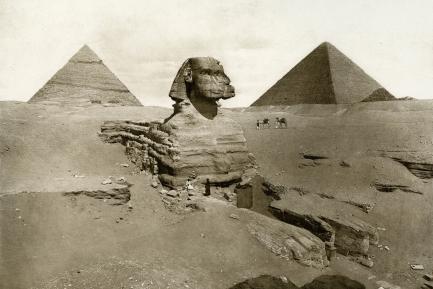
Why were early travel photographs made? What larger stories do they tell, and what are the challenges to interpreting them? This exhibition of materials from Archives & Special Collections explores the larger social and political context of photographs created as tourist souvenirs or to promote travel at the height of Western colonialism.
Silence Speaks: The Quiet Power of Wordless Novels
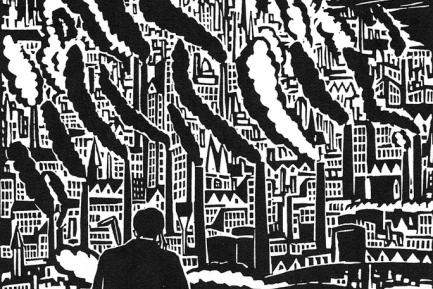
Wordless novels, a genre of visual storytelling that paved the way for today’s graphic novels, developed during the years of artistic, social, and political turmoil between the First and Second World War. This exhibition, featuring materials from the Rare Book Collection, introduces some of the major themes wordless novels express and highlights their connections to early cinema. In addition, it explores the complex relationship between power, knowledge, and silence, and reflects on how wordless books inform our understanding of communication more broadly. Visitors will also be able to trace wordless novels’ influences in the 1960s and beyond through a selection of underground comix on display in the adjoining research room.
'Plenty of Things To Do': The Work of Northwest Children's Author and Illustrator Doris Burn
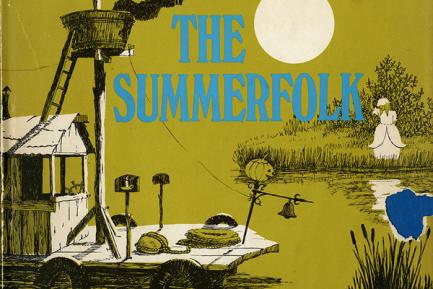
This exhibit features original manuscripts and artwork created by award-winning children's author and illustrator Doris Burn. A long-time resident of the San Juan Islands, Doris (Wernstedt) Burn authored and illustrated the 1965 classic Andrew Henry's Meadow, which won the Washington Governor's Art Award. She also wrote the much-loved favorites The Summerfolk and The Tale of Lazy Lizard Canyon, and served as illustrator for a range of other well-known children's books. This online resource was created as an accompaniment to a physical exhibit - "Plenty of Things to Do" - which Archives & Special Collections hosted between Fall 2016 and Winter 2017.
To the Mountaintop: A Social History of Mountaineering
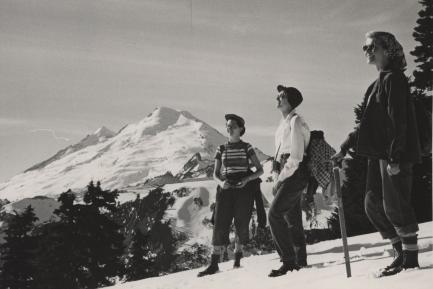
This exhibit features rare books, historical photographs, and manuscript materials which together reveal glimpses into the mountaineering history of the Pacific Northwest and beyond.
This selection of resources is intended to provide background and context to support the study not only of climbing and outdoor recreation, but also topics including race, gender, class, culture, and climate change. It was created as an accompaniment to a physical exhibition hosted by Archives & Special Collections between Fall 2018 and Winter 2019.